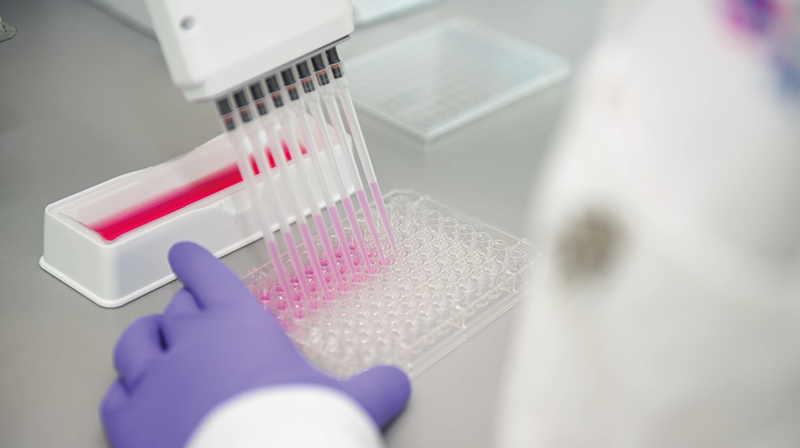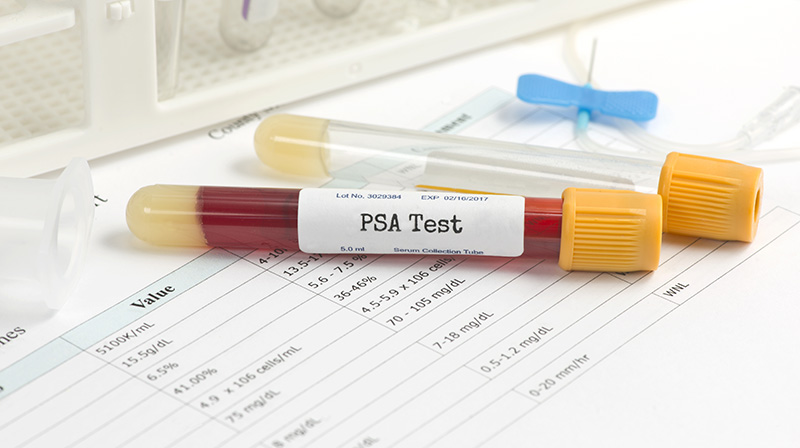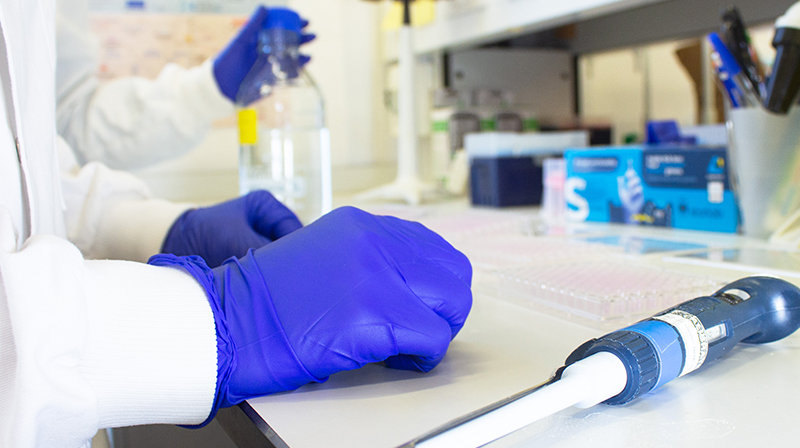
Using sugars to diagnose aggressive prostate cancer

Grant information
Institution: University of Birmingham
Lead Researcher: Professor Paula Mendes
Grant award: £274,945
Duration of funding: 2019–2023
Status: Active
Reference: RIA17-ST2-020
Beating prostate cancer is all about early detection. One day this technology could be used to detect prostate cancer in the first instance – the long-term aim is to replace the PSA blood test.
Why did we fund this project?
- The prostate specific antigen (PSA) is a protein produced by the prostate.
- A raised PSA level might indicate that there is a problem with the prostate, but not necessarily cancer.
- Currently we use the PSA blood test to help diagnose prostate cancer. But this can be unreliable and miss aggressive cancers that need urgent treatment.
- New research suggests that there are over 50 different forms of PSA, all with the same protein but with different sugars attached to it.
- Different types of sugars are associated with different problems with the prostate, including aggressive prostate cancer.
- We’re funding Professor Mendes to make the most of this information and re-invent the PSA blood test, to make it able to detect not just the presence of cancer, but also how aggressive it is.
The project in a nutshell

- Paula and the team are currently working towards clinical validation of a new PSA blood test which contains nanoparticles with a ‘pocket’ that specifically binds to PSA linked to aggressive forms of prostate cancer.
- The hope is that this test will be more accurate than the current PSA blood test and help identify men with aggressive prostate cancer for faster treatment.
What have the team done so far?

- Paula and team have now designed the nanoparticles so the 'pocket' specifically fits the forms of PSA associated with aggressive prostate cancer.
- These nanoparticles emit a colour when they attach to the aggressive forms of PSA, with more intense colour indicating the presence of more of the PSA.
- The team are now working towards using these new nanoparticles on samples from men where we know if their cancer was aggressive, or not, to see if the nanoparticles can identify the men with aggressive prostate cancer.
How will this benefit men?

- The current PSA blood test is not perfect, however this study holds exciting promise that could make testing PSA blood testing more accurate and transform how we diagnose prostate cancer.
- The aim is that men with aggressive prostate cancer will get treatment faster, and men with less aggressive prostate cancer can avoid side effects from unnecessary treatments.
With your help we can beat prostate cancer, together
With your continued support you can help us cure more men with less harm. Take action today and help us work towards a future where men's lives aren't limited by prostate cancer
